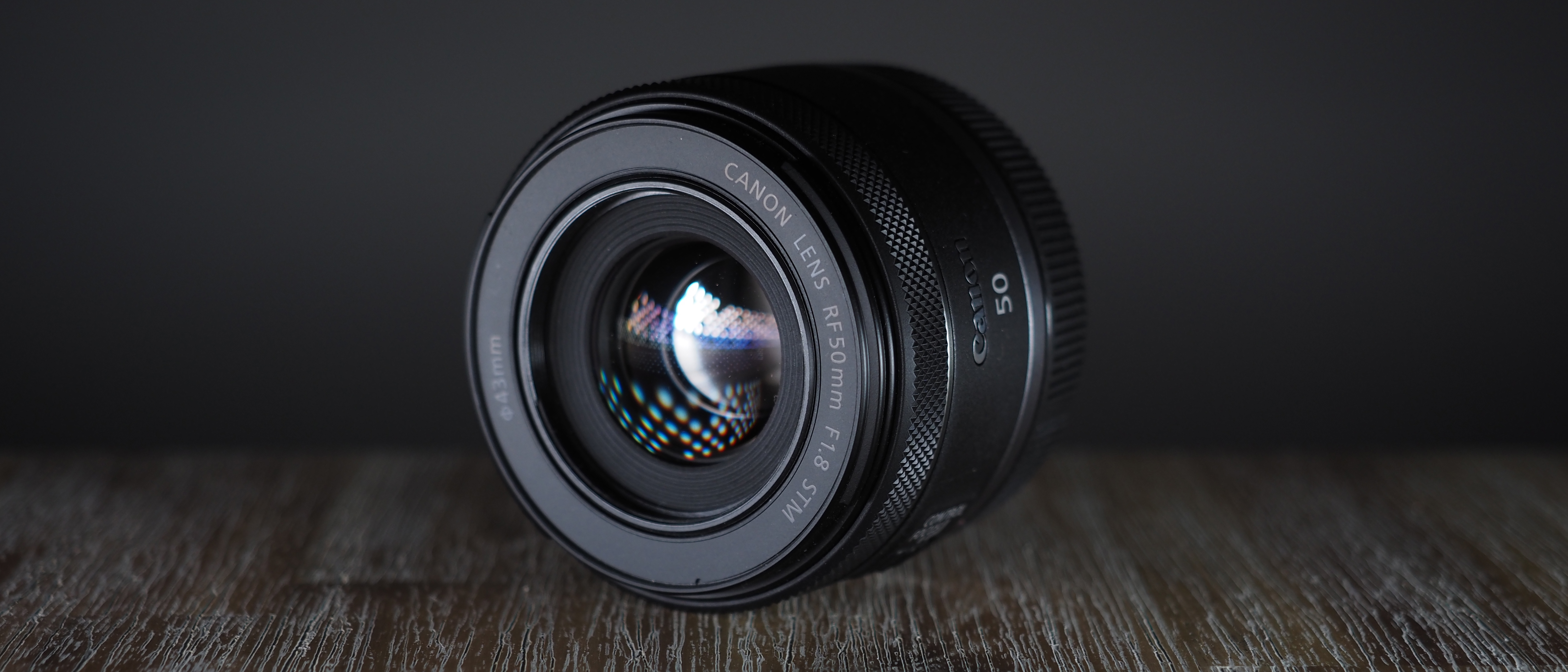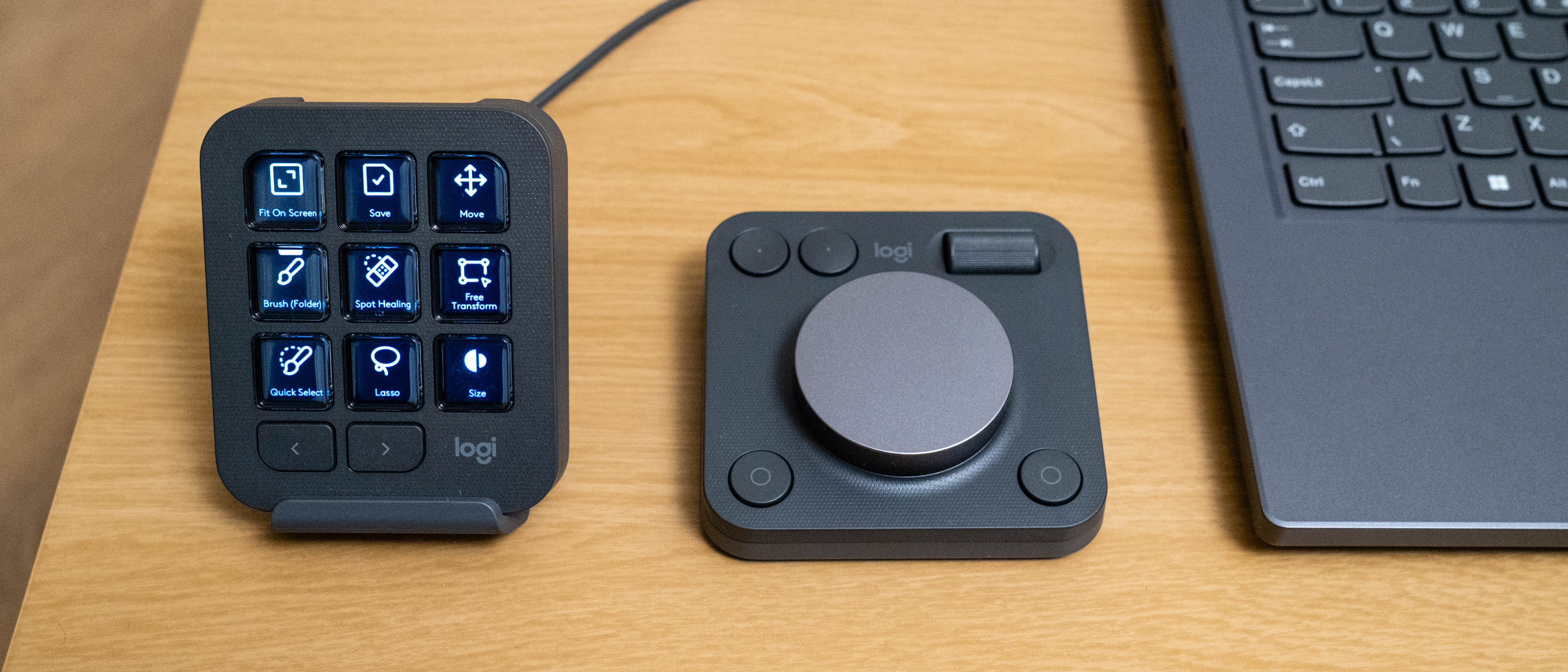Digital Camera World Verdict
The Canon RF 50mm f/1.8 STM is everything you want a nifty fifty to be. It's cheap, compact and capable, delivering great image quality (on par in some areas with the RF 50mm f/1.2L, which costs over ten times as much!) in a truly pocket-sized lens. The smallest optic for the EOS R system, it's a fantastic everyday lens that pairs well with any RF boy – and is particularly perfect with the Canon EOS RP if you want a sleek, street-friendly setup.
Pros
- +
Same size & weight as EF version
- +
… but not as plasticky!
- +
Impressive image quality
- +
Very affordable
Cons
- -
Not weather sealed
Why you can trust Digital Camera World
The Canon RF 50mm f/1.8 STM is exactly what Canon's RF ecosystem needed: an affordable nifty fifty. In fact, it needed more affordable lenses in general.
When the Canon EOS R launched in 2018, it was accompanied by the astonishing – and, at over two grand, astonishingly expensive – Canon RF 50mm f/1.2L USM. Until this year, the RF system was dominated by prestige lenses and premium-grade, professional optics – but almost no everyday glass that people can actually afford.
The Canon RF 50mm f/1.8 STM fills one of the few remaining glaring gaps in the EOS R lens lineup: a cheap, compact and capable standard lens to replace the venerable Canon EF 50mm f/1.8 STM.
Don't worry, though – this is far from a quick cut-and-shut of the old lens with a new mount; the optical formula has been redesigned, the build quality has been markedly improved, and the result is a truly essential (and truly affordable) lens for the EOS R family.
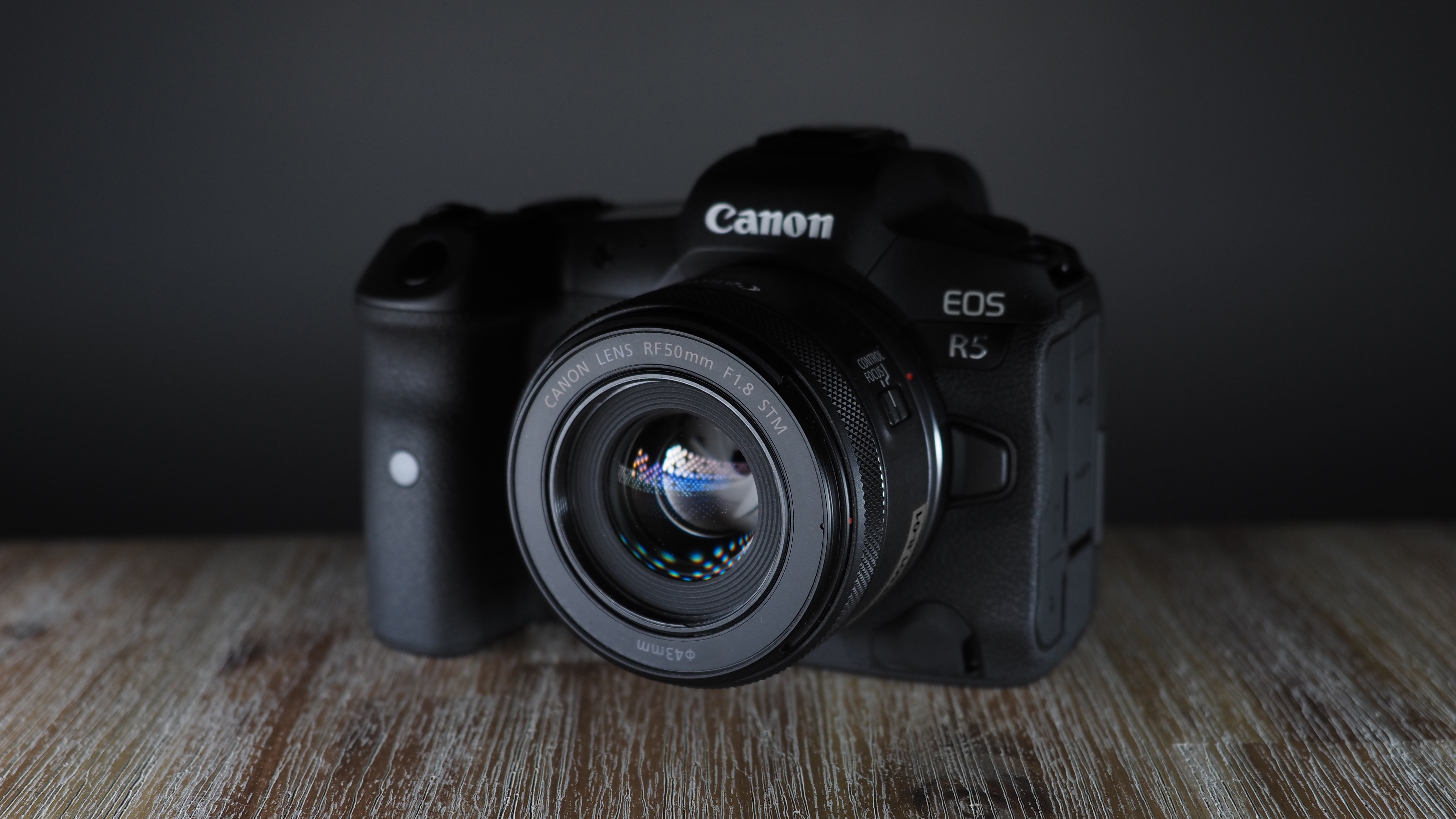
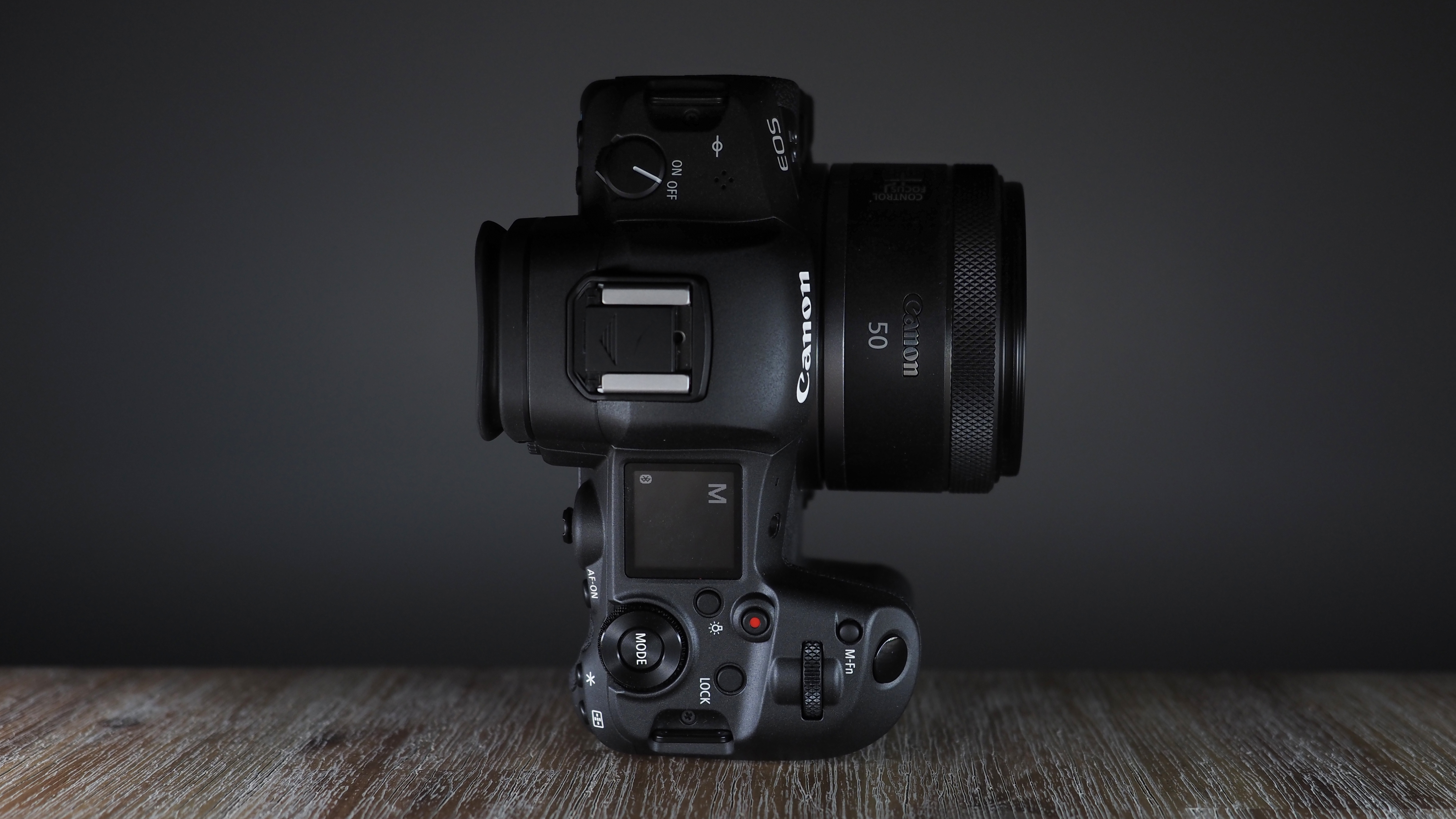
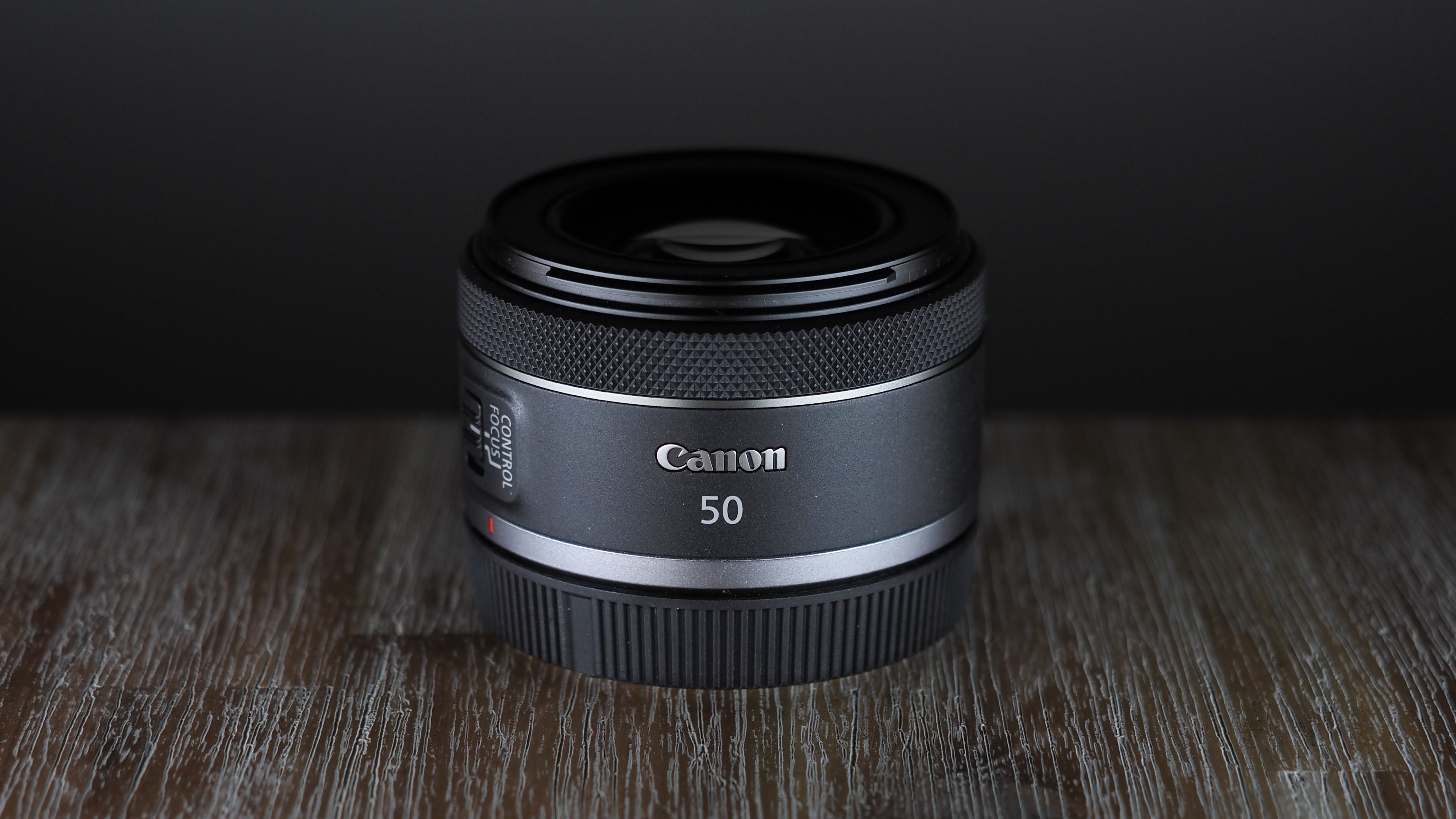
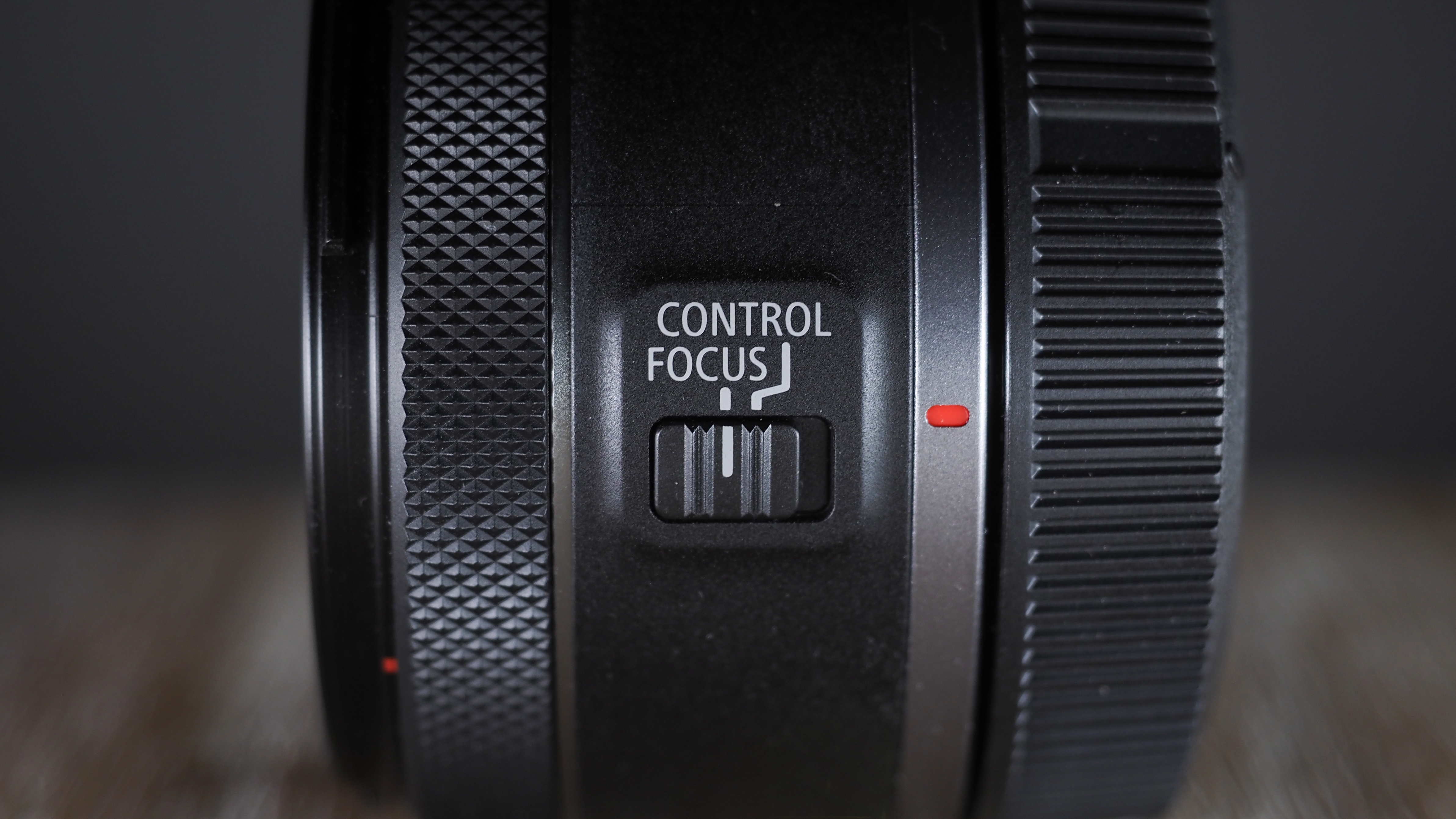
Canon RF 50mm f/1.8 STM specifications
Mount: Canon RF
Full frame: Yes
Autofocus: Yes
Image stabilization: No
Lens construction: 6 elements in 5 groups
Angle of view: 40°00′, 27°30′, 46°00′ (horizontal, vertical, diagonal)
Diaphragm blades: 7
Minimum aperture: f/22
Minimum focusing distance: 0.30m
Maximum magnification ratio: 0.25x
Filter size: 43mm
Dimensions: 69.2 x 40.5mm
Weight: 160g
Canon RF 50mm f/1.8 STM key features
Arguably the key feature about the RF 50mm f/1.8 is that it's a $200 / £220 lens – a less than a tenth of the price of its f/1.2L bigger brother!
This is a small, affordable, lightweight lens that you can slip into any camera bag, into a pocket, or even just leave it it permanently mounted to your camera so that it's always ready to shoot.
It's such a small lens that it makes even a Canon EOS R5 feel sleek and compact, though its perfect dance partner is arguably the Canon EOS RP – where it combines to create a truly slim, street-friendly shooting setup.
The headline stepping motor (STM) offers quick and quiet focus, which is fast enough to stills and smooth enough for video.
An aspheric element contributes to center-to-edge sharpness, and Canon's Super Spectra Coating improves overall image quality without affecting color rendition.

Canon RF 50mm f/1.8 STM build and handling
This is far and away the smallest and lightest lens for the RF mount, measuring just 40.5mm long and weighing a paltry 160g. As you can see in the images below, it's the same size (okay, it's 1.2mm longer!) as the existing EF 50mm f/1.8, and it weighs the same as well.
You can also see that it's even smaller than the Canon RF 35mm f/1.8 IS Macro STM, which was previously the smallest lens for the EOS R system.
That reduced real estate comes with a compromise, though, that being the lack of independent focusing and control rings. Like the Canon RF 85mm f/2 IS Macro STM, the control ring does double duty for focusing by way of a switch that toggles between the two functions.
While the RF 50mm f/1.8 is basically the same size and weight as the EF version, it feels a lot more 'premium'. The DSLR lens was a bit of a plastic fantastic, but the new RF edition feels a lot sturdy, more robust, and less cheap. It still isn't weather sealed, but it's better built and its looks are far more befitting the sleek styling of the RF ecosystem and design aesthetic.
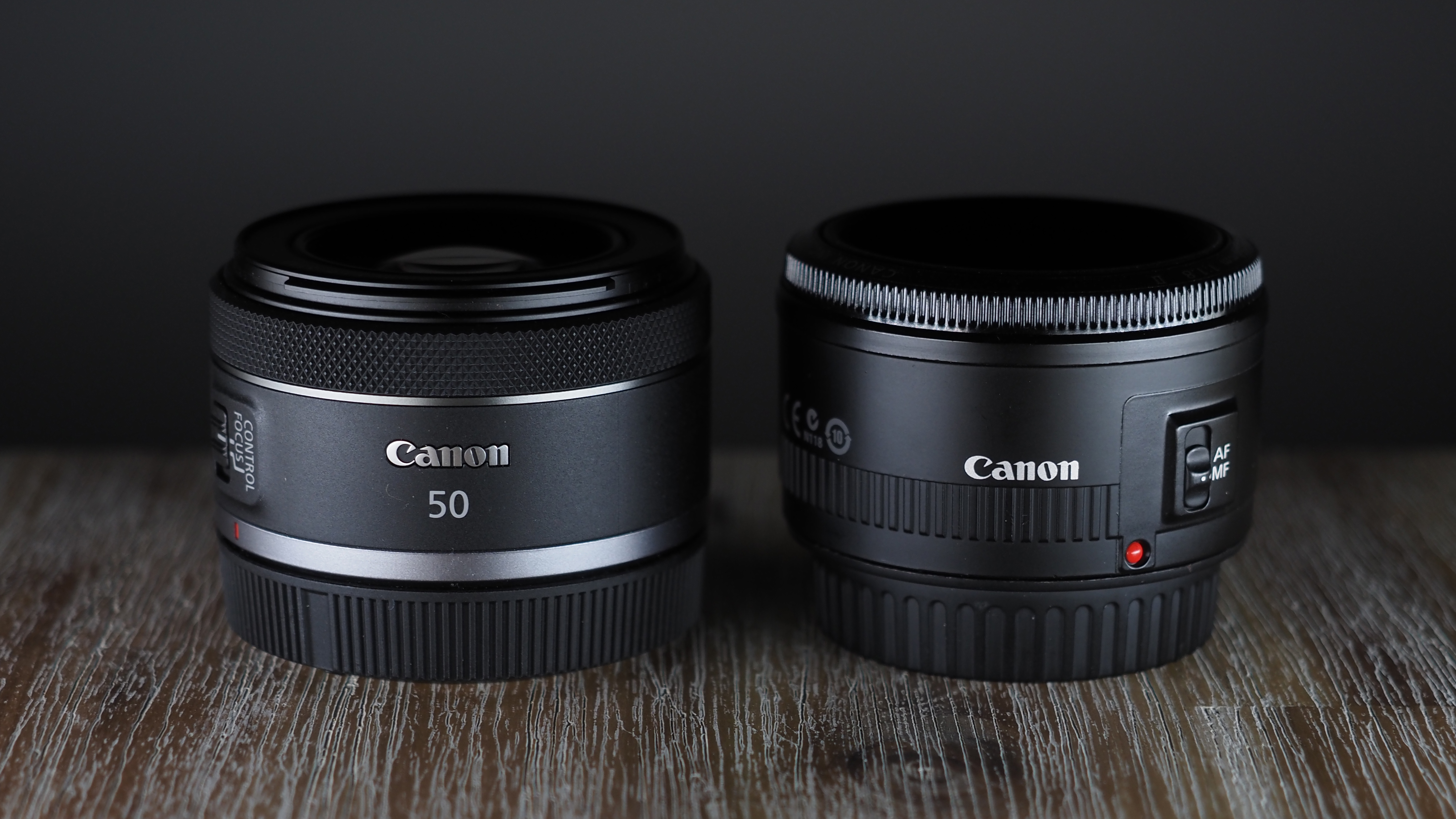
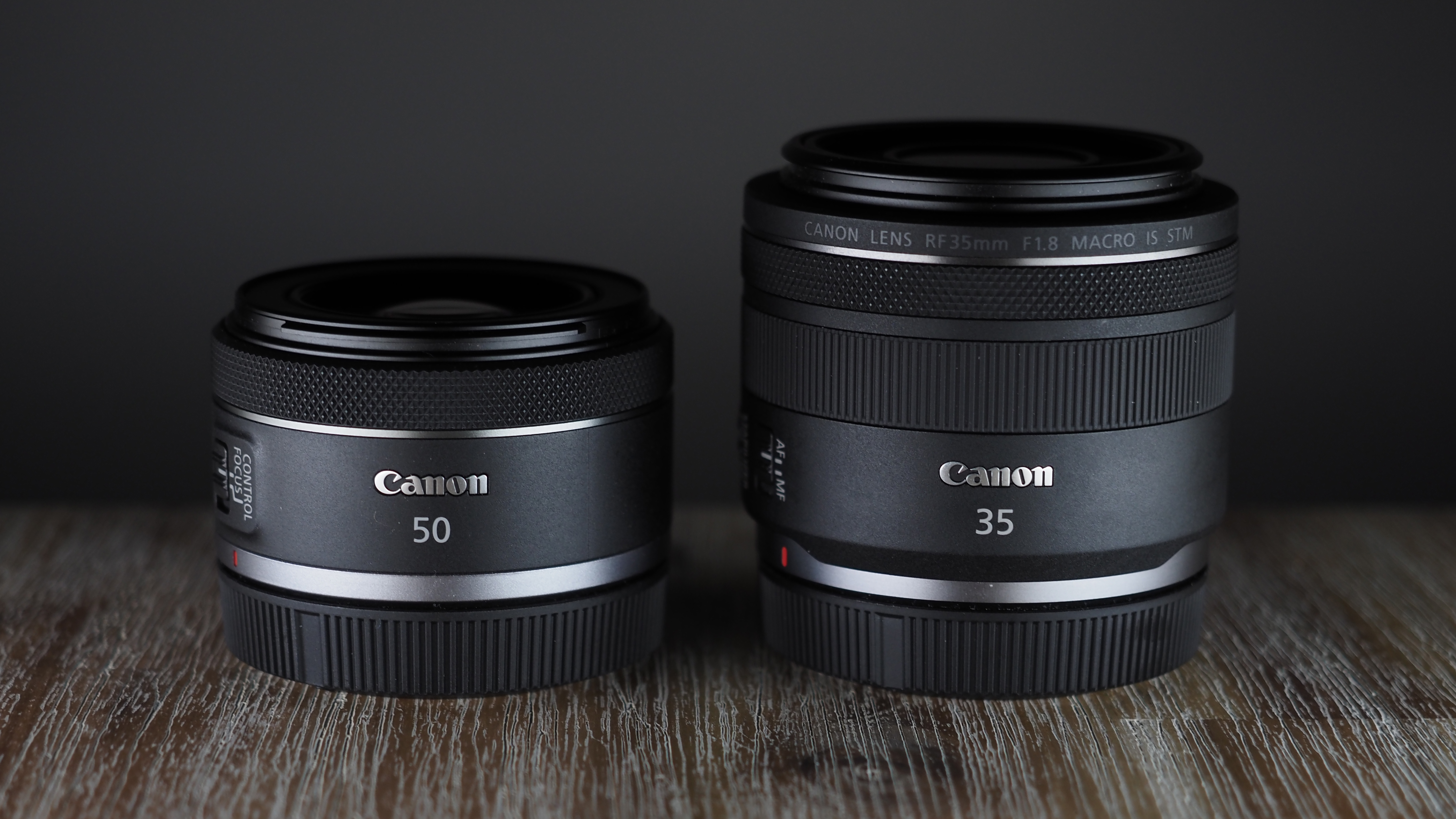
Canon RF 50mm f/1.8 STM performance
The Canon RF 50mm f/1.8 STM punches well above its weight, delivering images with impressive image quality across the entire aperture range. More than that, though, it's just a damned fun lens to use.
The lack of a 50mm f/1.8 was very, very noticeable on the EOS R system. Previously, you've had to either adapt the EF version using the mount adapter – which works, but adds significant size – or buy the 50mm f/1.2L – which works, but adds a significant hole to your pocket.
Having a truly pocket-friendly prime (in every respect) finally makes the RF family feel complete. The 50mm "standard" prime is so key to a lens lineup that's it's quite baffling that we've had to wait over two years to get one.
Now it's here, though, and it's everything you want a nifty fifty to be. On the one hand it's very affordable, but the low price in no way equates to low performance. This is a fast-focusing lens with a fast aperture, and mounted to your camera gives you a light and agile setup that's perfect for everyday shooting, street photography, travel photography, portraiture and everything in between.

Open it up to f/1.8 and you can achieve great subject separation, background blur and low light performance without sacrificing too much sharpness. Stop down to f/2.8 and beyond, though, and you've got a tack-sharp performer that captures all the detail you could ask for.
While it's clearly not in the same league as the mighty RF 50mm f/1.2L, under certain circumstances it can actually match its big brother for sharpness. And, at least anecdotally, it's a far superior lens to the older EF version.
The focusing mechanism is very quiet, though if you're using the internal microphones on your camera then you might pick up a hint of motor noise when recording video. The lens exhibits focus breathing, too, but otherwise it's a competent performer for shooting video.
So, it's much faster to focus, a whole lot quieter and is generally sharper across the frame. If you're holding onto your old DSLR version, yes, it's definitely worth replacing it with this!
Canon RF 50mm f/1.8 STM sample images


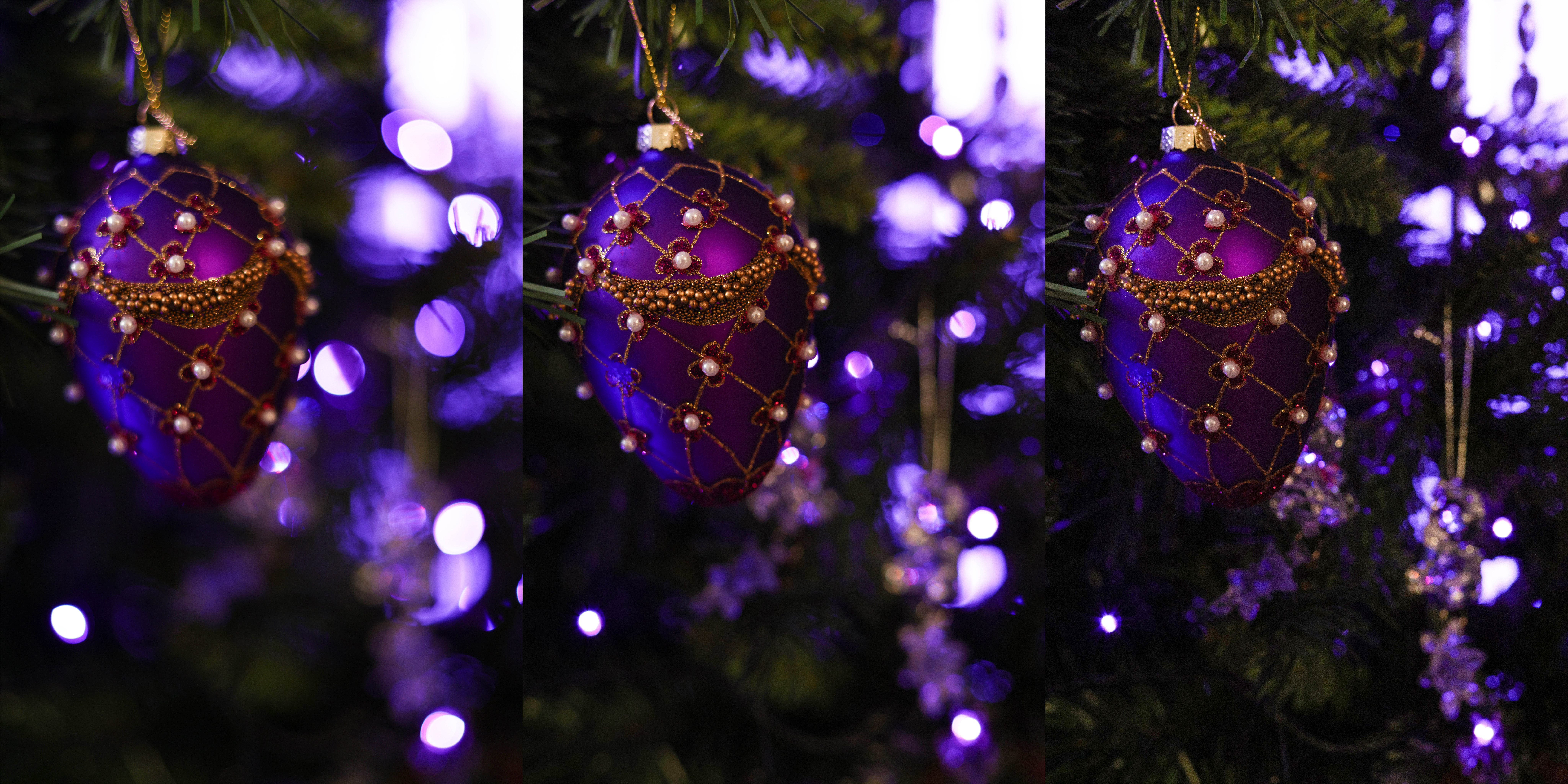





Canon RF 50mm f/1.8 STM lab data
Sharpness:
The sharpness scores in the graph below are produced by shooting a monochrome test chart covered in multiple sharp boundaries between black and white. This image is then assessed by specialist software, with the extent of blur on the contrast boundaries at the centre, mid and edges of the image converted into a spatial frequency value to determine how many line widths per picture height the lens is capable of resolving. A higher spatial frequency corresponds to a greater number of finer lines over a given distance that the lens can resolve - this number is the sharpness score.
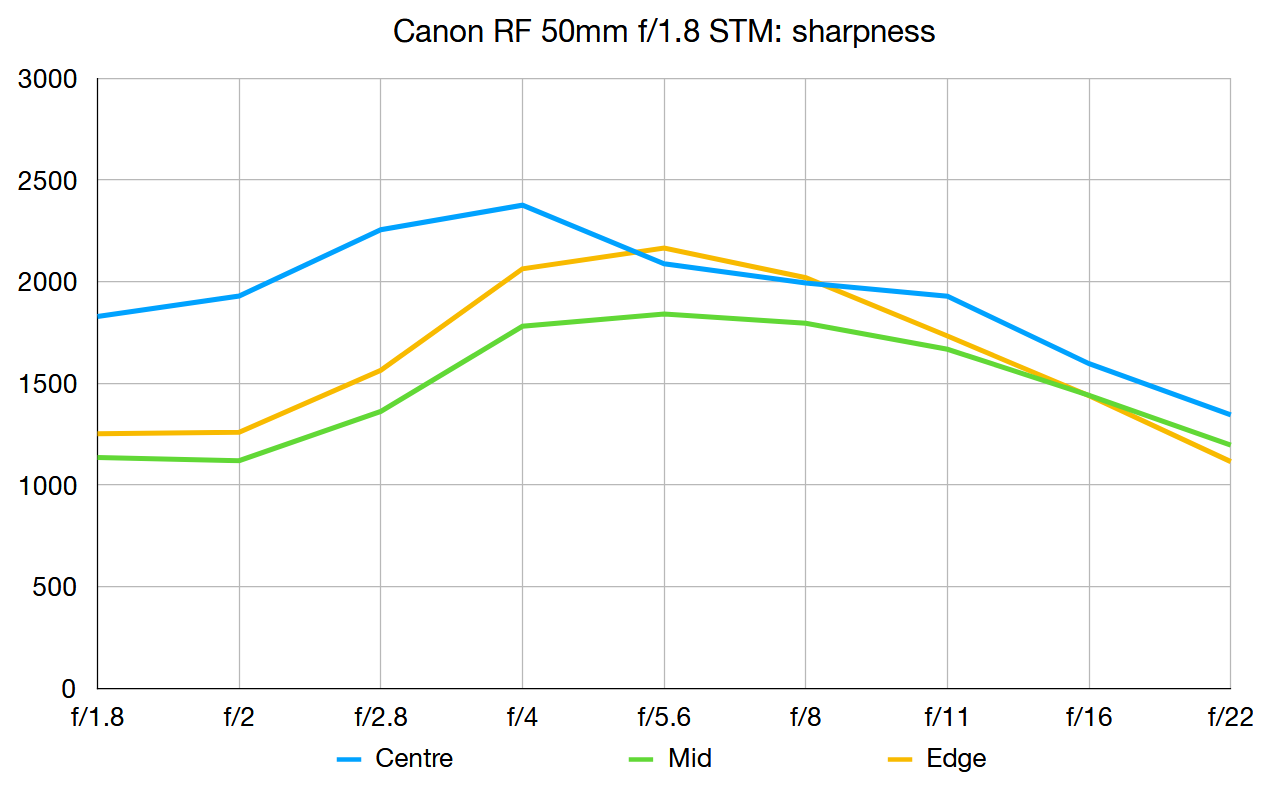
Centre sharpness is respectable wide open and at f/2, and by f/2.8 it's simply superb. These centre sharpness scores are actually comparable to the far pricier RF 50mm f/1.2! Corner sharpness is nothing special at larger apertures, but it gets much better if you stop down to f/4. A peculiarity with the lens is its mid-frame sharpness (the region surrounding the centre). With most optics, this area is usually softer than the centre, but sharper than the edges of frame. However, our RF 50mm f/1.8 sample was consistently softer in the mid-frame than at the edges, though the difference won't be very noticeable in real-world shooting.
Fringing:
The chromatic aberration scores are calculated using the same chart we use for measuring sharpness. This time the processing software assesses the sharp black-white contrast boundaries and determines the width in pixels of the colour fringe that divides black from white - the larger the width of the fringe, the greater - and worse - the fringing score.
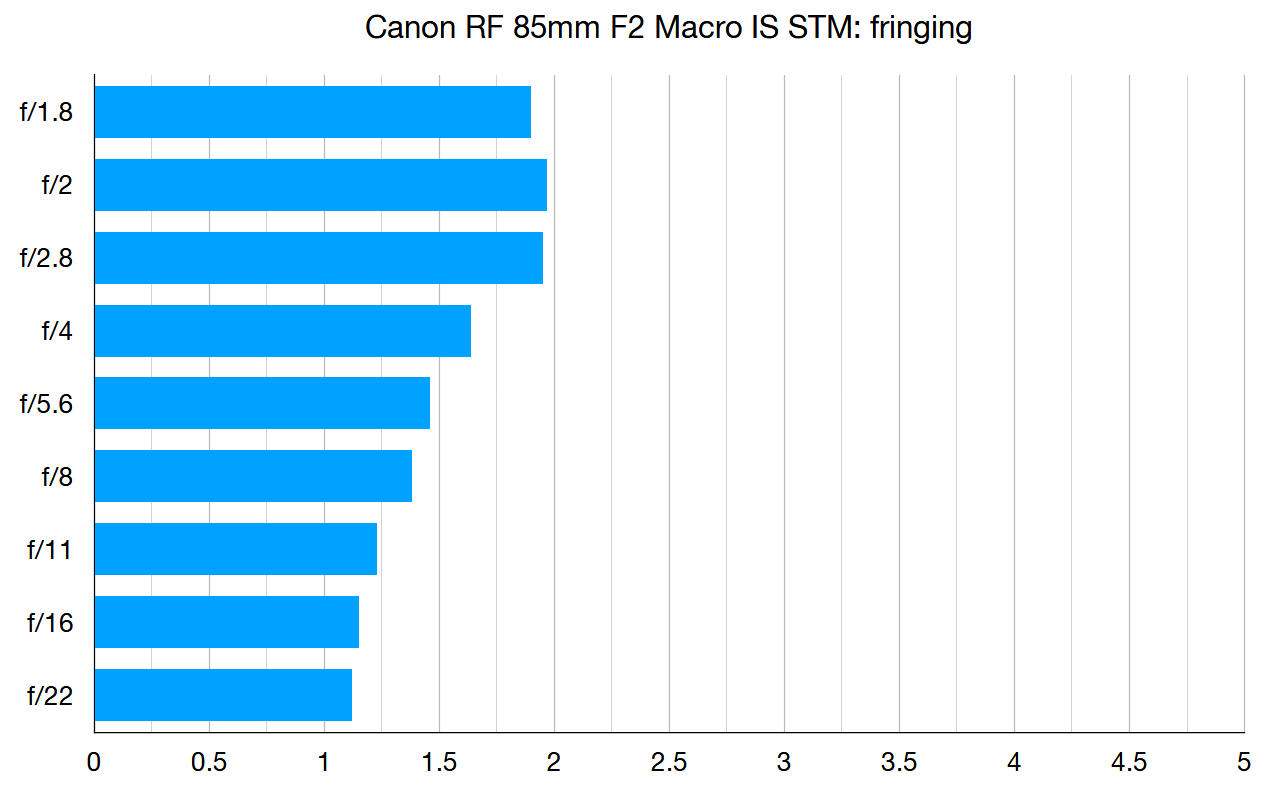
With in-camera fringing correction disabled, the RF 50mm f/1.8 STM produces noticeable - though not distracting - levels of fringing. This reduces to become almost unnoticeable by f/8, but you'll want to enable in-camera corrections to help banish aberrations at larger apertures.
Distortion: -0.36
Though we disable in-camera distortion correction for our lens testing, the RF 50mm f/1.8 still produces impressively little distortion - there's just a trace of barrel distortion.
Canon RF 50mm f/1.8 STM
Who would've thought, with all the premium glass that headlines the system, that the most exciting lens for EOS R cameras would be a $200 wonder. The Canon RF 50mm f/1.8 STM is quite simply an essential lens for every camera bag; small and light enough to go anywhere, fast enough to shoot in low light and snap into focus in a heartbeat, and silent and smooth enough to be used for video work. It's a true jack of all trades and, if you only own one prime lens – or only one lens, period – for your RF-mount camera, it really should be this one.
Read more:
Best Canon RF lenses
Canon RF 50mm f/1.2L USM review
Canon RF 35mm f/1.8 Macro IS STM review
Canon RF 85mm f/2 Macro IS STM review

James has 22 years experience as a journalist, serving as editor of Digital Camera World for 6 of them. He started working in the photography industry in 2014, product testing and shooting ad campaigns for Olympus, as well as clients like Aston Martin Racing, Elinchrom and L'Oréal. An Olympus / OM System, Canon and Hasselblad shooter, he has a wealth of knowledge on cameras of all makes – and he loves instant cameras, too.

